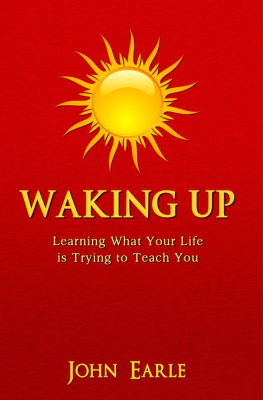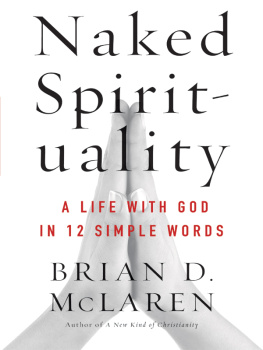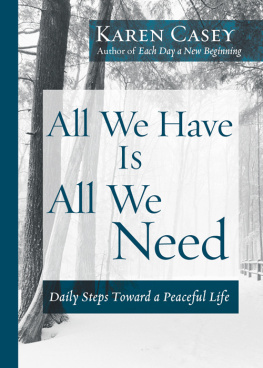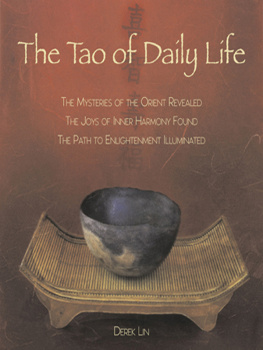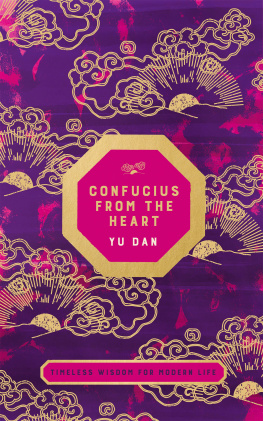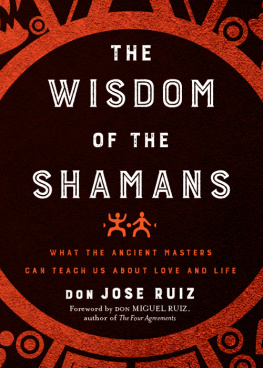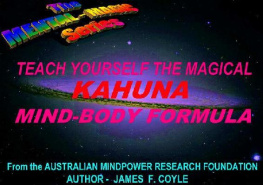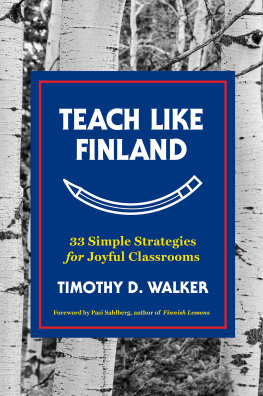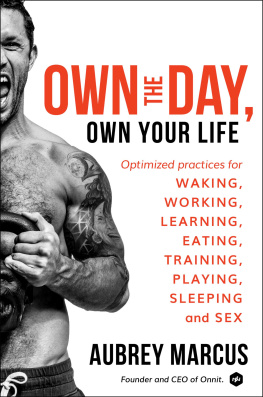John Earle - Waking Up, Learning What Your Life is Trying to Teach You
Here you can read online John Earle - Waking Up, Learning What Your Life is Trying to Teach You full text of the book (entire story) in english for free. Download pdf and epub, get meaning, cover and reviews about this ebook. year: 2012, publisher: Allawalla Books, genre: Religion. Description of the work, (preface) as well as reviews are available. Best literature library LitArk.com created for fans of good reading and offers a wide selection of genres:
Romance novel
Science fiction
Adventure
Detective
Science
History
Home and family
Prose
Art
Politics
Computer
Non-fiction
Religion
Business
Children
Humor
Choose a favorite category and find really read worthwhile books. Enjoy immersion in the world of imagination, feel the emotions of the characters or learn something new for yourself, make an fascinating discovery.
- Book:Waking Up, Learning What Your Life is Trying to Teach You
- Author:
- Publisher:Allawalla Books
- Genre:
- Year:2012
- Rating:3 / 5
- Favourites:Add to favourites
- Your mark:
- 60
- 1
- 2
- 3
- 4
- 5
Waking Up, Learning What Your Life is Trying to Teach You: summary, description and annotation
We offer to read an annotation, description, summary or preface (depends on what the author of the book "Waking Up, Learning What Your Life is Trying to Teach You" wrote himself). If you haven't found the necessary information about the book — write in the comments, we will try to find it.
John Earle: author's other books
Who wrote Waking Up, Learning What Your Life is Trying to Teach You? Find out the surname, the name of the author of the book and a list of all author's works by series.
Waking Up, Learning What Your Life is Trying to Teach You — read online for free the complete book (whole text) full work
Below is the text of the book, divided by pages. System saving the place of the last page read, allows you to conveniently read the book "Waking Up, Learning What Your Life is Trying to Teach You" online for free, without having to search again every time where you left off. Put a bookmark, and you can go to the page where you finished reading at any time.
Font size:
Interval:
Bookmark:

Waking Up
Learning What Your Life
Is Trying to Teach You
John Earle
The material in this book is not intended as psychological or religious advice. If you have a psychological issue or illness, consult a qualified psychologist or psychiatric medical doctor. It you have a religious issue; please consult your religious adviser, priest, rabbi or minister.
Copyright 2011 by John Earle
All rights reserved. No part of this book may be reproduced or transmitted in any form or by any means, electronic or mechanical, including photocopying, recording, or by any information storage and retrieval system without permission in writing from the publisher or the author.
Published by Allawalla Books, Miami. Florida
http://www.wakinguponline.com
ISBN 978-0-615-54620-9
For My Wonderful Kids
One thing we do know: Life will give you whatever experience is most helpful for the evolution of your consciousness. How do you know this is the experience you need? Because this is the experience
you are having at this moment.
Eckhart Tolle
Introduction
For the past 23 years I have worked with individuals, couples, and organizations as a counselor and interpersonal communication consultant. There are many components to this work but, at its core, it always boils down to helping people to speak their truth, to ask for what they want, and to overcome the obstacles that prevent this. Learning to speak in this powerful manner requires psychological and spiritual changes that are lasting and liberating. Before I could help anyone else, I had to do much of this work myself. This continues to be a fascinating journey.
I became interested in interpersonal communication through exploring intimacy. My wife, Babbie, and I experienced the work of Don and Martha Rosenthal who taught us how to reframe our intimate relationship as a spiritual path. Our work with them evolved into a partnership, and for several years we co-produced a weekend long couples retreat called Relationship, the Noble Adventure . The retreats focused on recognizing and acknowledging the power of the ego to create emotional pain and separation, and learning how to open the heart when the ego is demanding that it stay closed. This is deep work, and the retreats were often intense and life altering. Don was trained in psychology, and he and Martha had been spiritual seekers for many years. They taught new ways of understanding and transforming relationship difficulties, using these difficulties, as Don used to say, as compost for personal and spiritual growth. With the Rosenthals we produced over fifty retreats in which we practiced concrete exercises for effecting relationship change with hundreds of couples.
After our collaboration with the Rosenthals ended, Babbie and I worked with parent groups and couples who were interested in developing better interpersonal skills. Over time, my view of this work expanded. I realized how important the ability to communicate the truth is, not only in intimate and personal relationships, but also within larger groups and organizations. I began working with the business and institutional world and became a consultant in interpersonal communication. I used the same basic principles to help organizations achieve better interpersonal communication in order to solve problems. This work is especially useful in challenges associated with low morale, feelings of disempowerment, anger, cynicism and despair; all issues that hinder teamwork and synergy. Many problems in business and institutions have their roots in people feeling invisible, unappreciated and not heard. I have found that the full creative power of an organization or group cannot be manifested without creating a safe atmosphere in which the truth can be spoken, as well as developing the wisdom to know how and when to do so. When those in power become skillful listeners and sensitive speakers, an entire organization benefits. When employees are allowed to speak up for what they believe, while offering concrete suggestions for change, rather than simply complaining or acting out, they create new and helpful awareness. None of this threatens the organization or detracts from the power or responsibilities of its members. Everyone benefits from the harmony created and the creativity released.
All of this work centers on authentic communication, the ability to speak the truth without judgment or blame. This is a challenge that has been around for a long time. Authentic communication is described by cultural anthropologist Angeles Arrien as the seventh initiation of indigenous people. Listening with an open mind and heart is the necessary corollary. This is very difficult work. To speak the truth sometimes means taking risks: the risk of isolation, the risk of ridicule, the risk of job loss, the risk of change, and the risk of embarrassment. These risks can be attenuated by creating a safe environment for speaking up, and by making agreements that honor one anothers truth. Most important, personal changes seem to be accompanied by risk. It is through the action of speaking our truth that we discover our personal power, and simultaneously diminish the influence risk has to dissuade us from seeking change. Arrien teaches that authentic communication is the realm of the visionary. If we want change in our lives, or to influence the lives of others positively, we need to be able to envision what that change will look and feel like. The visionary is not hemmed in by blaming circumstance for their current condition or by using judgment as a false foundation for change. Of course, it is not necessary to be a visionary, in the cultural sense, in order to communicate authentically, but, without authenticity, our vision can be hapless and misleading and we may suffer from disillusion.
Authentic communication is a doorway into a more profound journey. It doesnt take long to realize that authentic communication is the tip of an iceberg because it is a practice that requires much self-discovery. We cant speak our truth if we do not know what it is. Also, we cant speak our truth if we dont feel safe doing so, and the safety required has much less to do with the world around us than with ourselves, and the personal obstacles that arise when we make the choice to speak out or ask for what we want. Thus speaking our truth brings us directly into contact with our hidden and repressed fears. We can respond to these fears consciously or react to them unconsciously. There are strategies for both paths. Here we take the view that the conscious path is preferable.
Embracing a conscious approach to our difficulties, especially in our relationship to others, lies at the heart of my counseling and consulting practice. This book concerns itself with four important strategies for manifesting conscious responses to lifes challenges. It is about living a more aware and more conscious life. The conscious approach, well known by now, takes the view that the difficulties or discomforts we experience in life are our teachers, that there is always some lesson to be learned when difficulties arise, and that there is something we have either forgotten or never learned that is brought forward by the challenging areas of our lives. These challenging areas turn out to be exactly the places in which we have not completed our growth or are not completely whole. One of the beauties of life is that all of these difficult places invariably contain the seeds of what we need to do to create the life we really want. As a counselor, I help individuals and couples first to express their emotionally painful stories clearly and then take responsibility for them. This can be hard work. Then we work to understand the core challenges that these stories demonstrate and, using specific views and tools, do the inner work for which these challenges call. Using the four strategies contained in this book my clientsdo the discovery work. They learn the power of awareness in identifying clearly what is really occurring in their lives. Theylearn the absolute necessity of taking personal responsibility. They seek out teachers, teachings and practices that enhance the inner work necessary to create the change of heart or to create a new view necessary for changing their outer world. They take new action to discover the power of their own change. They experience the benefits of embracing a conscious approach and experience their own power to create change in their lives. I believe this approach is very helpful because it teaches and encourages all of us to take personal responsibility for our lives. Eventually, we realize it is not helpful to dwell on old stories or keep looping back through previous experiences. What we need is usually right in front of us right now, although, of course, we sometimes have to go back and deal with some old demons that have resurfaced in new guises in the present.
Font size:
Interval:
Bookmark:
Similar books «Waking Up, Learning What Your Life is Trying to Teach You»
Look at similar books to Waking Up, Learning What Your Life is Trying to Teach You. We have selected literature similar in name and meaning in the hope of providing readers with more options to find new, interesting, not yet read works.
Discussion, reviews of the book Waking Up, Learning What Your Life is Trying to Teach You and just readers' own opinions. Leave your comments, write what you think about the work, its meaning or the main characters. Specify what exactly you liked and what you didn't like, and why you think so.

